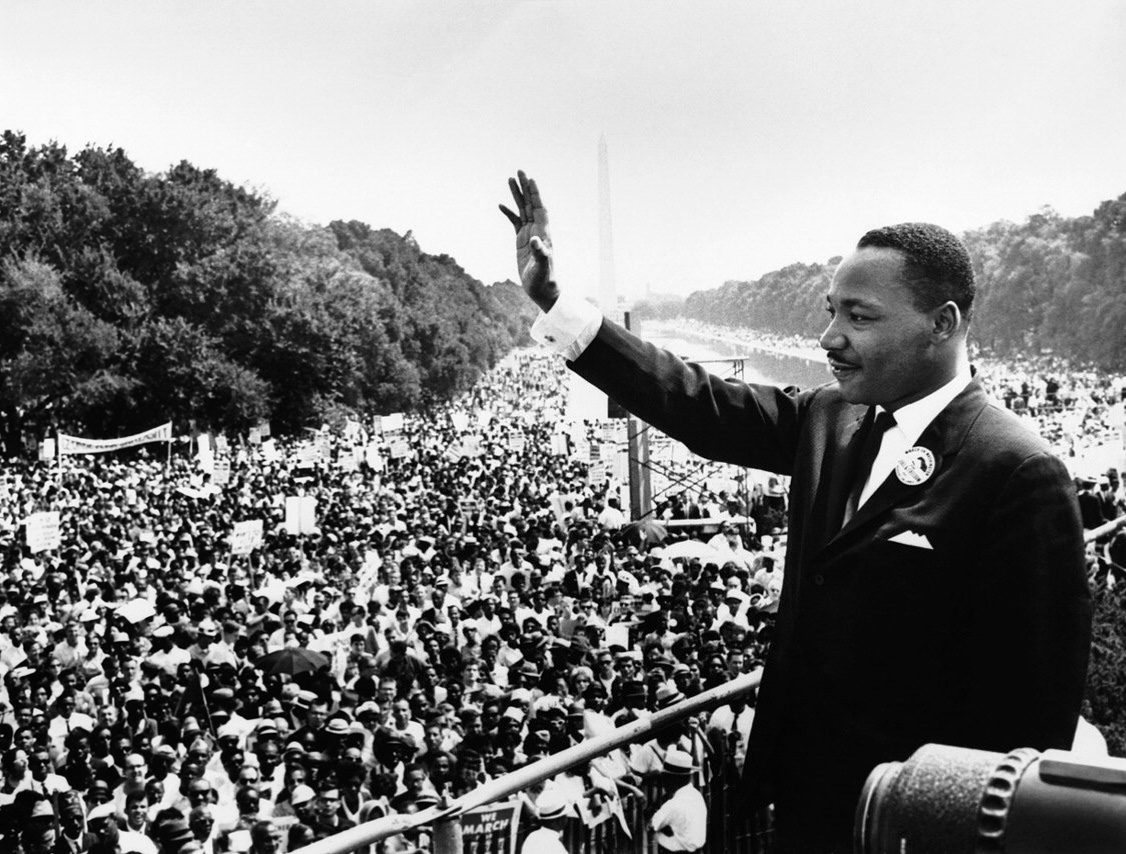
- Details
- By United South and Eastern Tribes (USET)
Guest Opinion. Today our nation pauses to honor the life and legacy of Dr. Martin Luther King, Jr. Since his birthday was first observed as a holiday in 1986, communities across the land have found meaningful ways to honor his work and ideas – through volunteerism, activism, and reflection. Certainly, Dr. King worked tirelessly in his commitment to peace, equality, and justice and his name is often invoked as a symbol of all these ideas, to the betterment of our shared society. But, too often, symbols become idealized, romanticized, or even redefined, for purposes that lie beyond their intent.
It is undeniable that we live in a challenging time, with rancor and division on the rise, alternate realities afoot, gun violence commonplace, and a seemingly endless pandemic nipping at our heels and refusing to go away, like a steadfast grudge or harbinger of past slights. For some, there is a tendency to see despair instead of hope and feel that any current malaise is unique to our time, that we are facing a reckoning of which we’ve never seen. Or to long for heroes like Dr. King and wonder what he would think, if he were alive today, how he would react, what he would say, but we know the answer to these questions.
Want more Native News? Get the free daily newsletter today.
It is worth reminding ourselves that he lived in a time where church bombings, lynchings, and widespread demonstrations, both violent and peaceful, were the norm, as our nation struggled through the Cold War, Civil Rights, and Viet Nam. He did not give up hope – ever – and he always pressed ahead, because as he famously said, “the arc of the moral universe is long, but it bends towards justice.” He told us, change is not only possible, it is inevitable and how we affect that change or shape that change, remains with us. And in this equation, we are the heroes we long for.
Dr. King was also aware of the importance of conflict, where the definition lies in the doing, that our progress is often messy and circuitous, but if we remain steadfast, that progress is made. “I must confess,” he said, “that I am not afraid of the word tension. I have earnestly opposed violent tension, but there is a type of constructive, nonviolent tension which is necessary for growth.” It is not clear sailing, nor should it be, because things of great worth take time and Because there is Strength in Unity effort—a reality with which Indian Country is all too familiar. There is sacrifice and often, pain, but through it all comes redemption.
So, to follow Dr. King’s lead, then, we suggest that we look at our current times not as a portend of dark days to come, but rather an opportunity, to continue the effort to heal long-hidden wounds (especially America’s first moral sins against Tribal Nations and Native people), to acknowledge our common ground while challenging norms and celebrating all the beauty that makes us each unique, to embrace the tension that comes out of looking beyond our personal realities to consider another’s realities, and to act boldly in challenging injustice or falsehoods, whether it is coming from a neighbor or institution. It can be an uncomfortable threshold to cross, but when done with dignity and integrity and intelligence, it has shown to be effective and a necessary building block to collaboration, communication, and common goals. This process is more necessary than ever, to turn passive into active, to allow our nation, to go forward, together, rather than step back, alone.
When we choose to be engaged, we become accountable, to ourselves, to each other, to our ancestors who have come before, and to those who follow in the generations ahead. Dr. King’s words, acts, and deeds reflect an individual who chose to roll up his sleeves, take chances, and was not afraid to confront situations where peace, justice and equality are threatened. His birthday is a reminder of the work to be done, that is both at hand, and within reach, and the hope that must accompany all our efforts to confront America’s dark past and ongoing injustice, and to carve a new path of truth for all our relations across the country.
The United South and Eastern Tribes, Inc. (USET) is a non-profit, inter-Tribal organization serving 33 federally recognized Tribal Nations from the Northeastern Woodlands to the Everglades and across the Gulf of Mexico.
Help us defend tribal sovereignty.
At Native News Online, our mission is rooted in telling the stories that strengthen sovereignty and uplift Indigenous voices — not just at year’s end, but every single day.
Because of your generosity last year, we were able to keep our reporters on the ground in tribal communities, at national gatherings and in the halls of Congress — covering the issues that matter most to Indian Country: sovereignty, culture, education, health and economic opportunity.
That support sustained us through a tough year in 2025. Now, as we look to the year ahead, we need your help right now to ensure warrior journalism remains strong — reporting that defends tribal sovereignty, amplifies Native truth, and holds power accountable.
 The stakes couldn't be higher. Your support keeps Native voices heard, Native stories told and Native sovereignty defended.
The stakes couldn't be higher. Your support keeps Native voices heard, Native stories told and Native sovereignty defended.
Stand with Warrior Journalism today.
Levi Rickert (Potawatomi), Editor & Publisher
